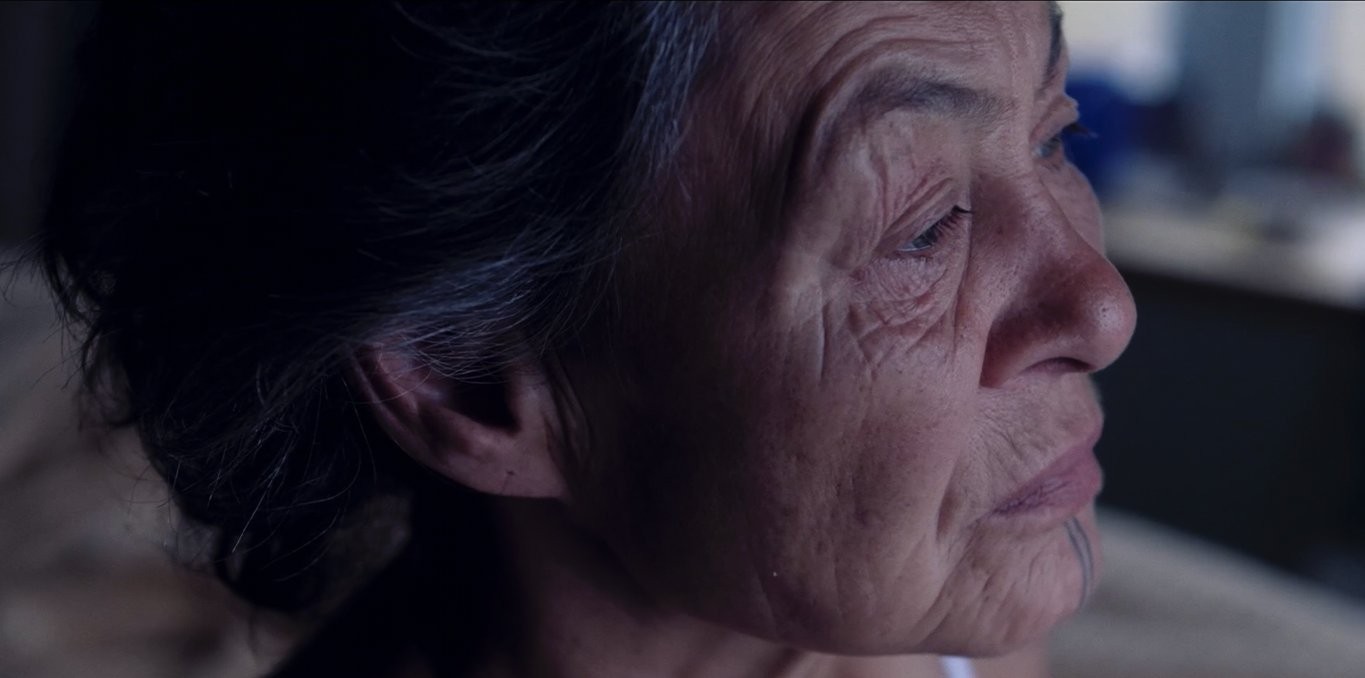Twice Colonized

Renowned Inuit lawyer Aaju Peter has led a lifelong fight for the rights of her people. A member of a historically marginalized and oppressed community, Aaju’s heritage puts her in the unique position of someone who has been “twice colonized” – first by European settlers who arrived in the Arctic, and then by modern-day Canadian policies and institutions. But while launching an effort to establish an Indigenous forum at the EU, Aaju finds herself facing a difficult and deeply personal journey to mend her own wounds after the unexpected passing of her youngest son.
| Director | Lin Alluna |
| Share on |
Doubly powerful, this film exposes the mechanisms of assimilation that have operated — and continue to operate — both in Canada and Denmark among Inuit populations. To make these forces tangible, the director chooses to immerse us in the deeply personal experience of Aaju Peter, a lawyer of remarkable resilience, who has endured both the attempted cultural destruction of her Greenlandic people and the intimate violence of a toxic relationship in Iqaluit, Canada.
Alongside Aaju Peter, we witness her journey of reclaiming herself, her language, her rights, and her stories. This transformation unfolds through political, activist, and legal engagement, giving form to realities that are often rendered invisible.
I am particularly struck by the moment when Aaju Peter addresses the audience during a conference — and, through her voice, the viewers of the film also — asking: “What would you like us to do: do you want us to be sustainable and traditional, or do you want us to be part of the modern economy?” She pauses for a moment of silence, then answers: “Guess what, it is our choice!”
The film forces us to acknowledge the voices of those who still carry the traces of multiple colonizations — and of the ongoing ones of today.
Sylvie Lapointe
Filmmaker

-

Français
1h31
Language: Français -

English
1h31
Language: English
- Année 2023
- Pays Canada, Denmark
- Durée 91
- Producteur EyeSteelFilm
- Langue English, Danish, Inuktitut, Kalaallisut (Greenlandic)
- Sous-titres French, English
- Résumé court Renowned Inuit lawyer Aaju Peter embarks on a journey to reclaim her language and culture after a lifetime of whitewashing and forced assimilation.
- Mention festival Meilleur long métrage documentaire · Prix Écrans canadiens 2024
- Ordre 1
- TLF_Applismb_CA 1
- Date édito CA 2025-11-14
Doubly powerful, this film exposes the mechanisms of assimilation that have operated — and continue to operate — both in Canada and Denmark among Inuit populations. To make these forces tangible, the director chooses to immerse us in the deeply personal experience of Aaju Peter, a lawyer of remarkable resilience, who has endured both the attempted cultural destruction of her Greenlandic people and the intimate violence of a toxic relationship in Iqaluit, Canada.
Alongside Aaju Peter, we witness her journey of reclaiming herself, her language, her rights, and her stories. This transformation unfolds through political, activist, and legal engagement, giving form to realities that are often rendered invisible.
I am particularly struck by the moment when Aaju Peter addresses the audience during a conference — and, through her voice, the viewers of the film also — asking: “What would you like us to do: do you want us to be sustainable and traditional, or do you want us to be part of the modern economy?” She pauses for a moment of silence, then answers: “Guess what, it is our choice!”
The film forces us to acknowledge the voices of those who still carry the traces of multiple colonizations — and of the ongoing ones of today.
Sylvie Lapointe
Filmmaker
-

Français
Duration: 1h31Language: Français1h31 -

English
Duration: 1h31Language: English1h31
- Année 2023
- Pays Canada, Denmark
- Durée 91
- Producteur EyeSteelFilm
- Langue English, Danish, Inuktitut, Kalaallisut (Greenlandic)
- Sous-titres French, English
- Résumé court Renowned Inuit lawyer Aaju Peter embarks on a journey to reclaim her language and culture after a lifetime of whitewashing and forced assimilation.
- Mention festival Meilleur long métrage documentaire · Prix Écrans canadiens 2024
- Ordre 1
- TLF_Applismb_CA 1
- Date édito CA 2025-11-14
